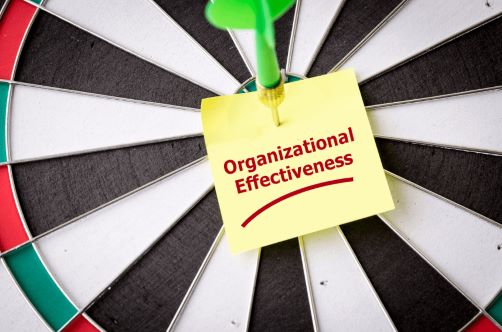

In the contemporary business landscape, efficiency is a paramount objective for organizations seeking to thrive amidst competition and uncertainty. Within this pursuit, the Committee of Sponsoring Organizations of the Treadway Commission (COSO) emerges as a guiding beacon, offering a comprehensive framework that safeguards financial integrity and cultivates operational efficiency. This article delves into a comprehensive guide to COSO framework and compliance, elucidating how it catalyzes streamlining operations and maximizing organizational effectiveness.
Understanding COSO: A Foundation for Efficiency
At the core of COSO’s framework lies a structured methodology designed to address the intricate interplay between financial reporting, risk management, and operational control. By delineating principles and guidelines, COSO empowers organizations to establish a cohesive structure permeating every facet of their operations. From the boardroom to the frontlines, COSO’s principles serve as a common language, fostering alignment and coherence in pursuit of efficiency.
Integration: Bridging Silos for Seamless Operations
One of the fundamental pillars of COSO’s approach to efficiency is the emphasis on integration. In a landscape characterized by specialization and departmentalization, silos often impede the flow of information and hinder collaboration. COSO’s framework transcends these barriers, advocating for a holistic view of organizational processes. By integrating controls across functions and departments, COSO enables organizations to streamline workflows, minimize redundancies, and eliminate inefficiencies from disjointed operations.
Risk Management: Safeguarding Efficiency Amidst Uncertainty
Uncertainty casts a formidable shadow over business endeavors, perpetually challenging even the most meticulously orchestrated plans. Within this dynamic landscape, the Committee of Sponsoring Organizations of the Treadway Commission (COSO) stands as a stalwart advocate for proactive risk management. By intertwining risk assessment mechanisms within operational processes, organizations fortify their defenses against the disruptive forces of volatility and complexity.
COSO’s framework underscores the symbiotic relationship between risk and efficiency, recognizing that proactive risk mitigation is indispensable for preserving operational integrity. By systematically integrating risk assessment protocols, organizations gain the foresight necessary to identify potential threats and vulnerabilities preemptively. Armed with this insight, they can implement targeted measures to mitigate risks, preempting disruptions and safeguarding the efficiency of their operations.
Moreover, COSO’s approach to risk management transcends mere mitigation; it fosters a culture of resilience and adaptability within organizations. By instilling a proactive mindset that anticipates and responds to emerging risks, COSO empowers organizations to navigate uncertainty with confidence. This proactive stance not only shields efficiency from the erosive effects of unforeseen challenges but also cultivates agility, enabling organizations to seize opportunities and thrive amidst volatility.
In essence, COSO’s advocacy for proactive risk management serves as a beacon of stability amidst turbulent seas. By embedding risk assessment mechanisms within operational frameworks, organizations fortify their defenses against uncertainty and lay the groundwork for sustained efficiency and resilience in an ever-changing business landscape.
Technology: Leveraging IT for Enhanced Efficiency
When it comes to digital transformation, Information Technology (IT) emerges as a pivotal enabler of efficiency and innovation. COSO’s framework acknowledges the critical role of IT in modern business operations, extending its guidance to encompass technological domains. By aligning IT controls with overarching organizational objectives, COSO empowers organizations to harness the full potential of technology, leveraging automation, data analytics, and digital platforms to drive efficiency gains across the board.
Within IT, automation is a cornerstone for streamlining processes and reducing manual intervention. COSO encourages organizations to identify repetitive tasks prone to human error and automate them through software solutions or robotic process automation (RPA). By doing so, organizations can free up valuable human resources, minimize errors, and accelerate task completion, enhancing overall operational efficiency.
Furthermore, COSO advocates for the strategic utilization of data analytics to derive actionable insights and inform decision-making processes. Through the implementation of robust data governance frameworks and analytical tools, organizations can unlock the value inherent in their data assets. By leveraging data analytics, organizations can identify trends, forecast future performance, and optimize resource allocation, thereby driving efficiency and facilitating informed strategic initiatives.
In addition to automation and data analytics, COSO underscores the importance of leveraging digital platforms to facilitate collaboration, communication, and information sharing across organizational boundaries. Whether through enterprise resource planning (ERP) systems, cloud-based applications, or collaborative tools, digital platforms enable seamless integration of processes and workflows, fostering agility and responsiveness in a rapidly evolving business environment.
In essence, COSO’s guidance on IT controls empowers organizations to leverage technology as a catalyst for efficiency and innovation. By aligning IT initiatives with strategic objectives and embracing automation, data analytics, and digital platforms, organizations can unlock new opportunities for growth, enhance competitiveness, and adapt to the demands of a digital-first world.
Continuous Improvement: Fostering a Culture of Optimization
Efficiency transcends mere achievement; it embodies a perpetual voyage of enhancement and adaptation. As a steadfast proponent of progress, COSO instills a culture of perpetual advancement within organizations. Prioritizing learning, feedback, and refinement, COSO champions the ethos of continuous improvement. Through systematic monitoring, rigorous evaluation, and iterative refinement, organizations unearth avenues for optimization. By meticulously scrutinizing processes, identifying bottlenecks, and leveraging insights garnered from data-driven analysis, organizations unlock latent efficiencies. This iterative approach not only facilitates the elimination of inefficiencies but also fosters the cultivation of innovative solutions to complex challenges.
Central to COSO’s philosophy is the recognition that operational excellence is not a static state but an ongoing endeavor. Embracing this mindset, organizations perpetually seek to refine their methodologies, streamline their workflows, and augment their capabilities. Through a relentless pursuit of improvement, organizations cultivate resilience, adaptability, and agility, enabling them to navigate the dynamic currents of the business landscape with confidence and efficacy.
In essence, COSO’s advocacy for continuous improvement transcends the realm of operational efficiency; it embodies a philosophy of organizational evolution. By fostering a culture of learning, innovation, and adaptability, COSO empowers organizations to thrive in the present and anticipate and shape the future. In this journey toward excellence, COSO stands as a guiding light, illuminating the path toward sustainable growth, resilience, and success.
Conclusion: Unlocking the Potential of Efficiency In conclusion, a comprehensive guide to the COSO framework and compliance guides organizations toward realizing operational excellence and efficiency. By emphasizing integration, risk management, technological alignment, and continuous improvement, COSO equips organizations with the tools and methodologies needed to navigate the complexities of modern business landscapes. As organizations embrace COSO’s principles and embed them within their operations, they unlock the full potential of efficiency, driving sustainable growth and resilience in an ever-evolving world.


